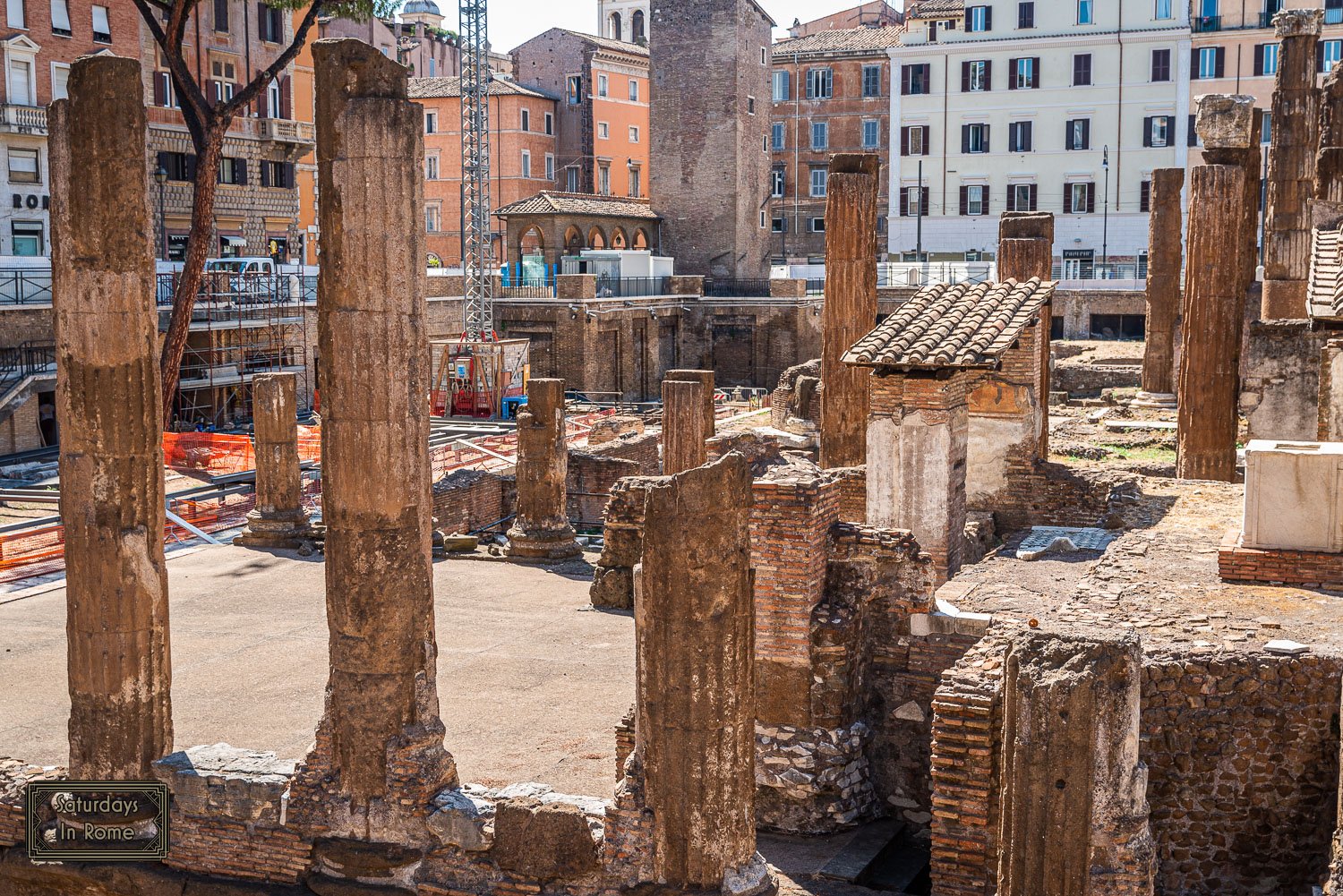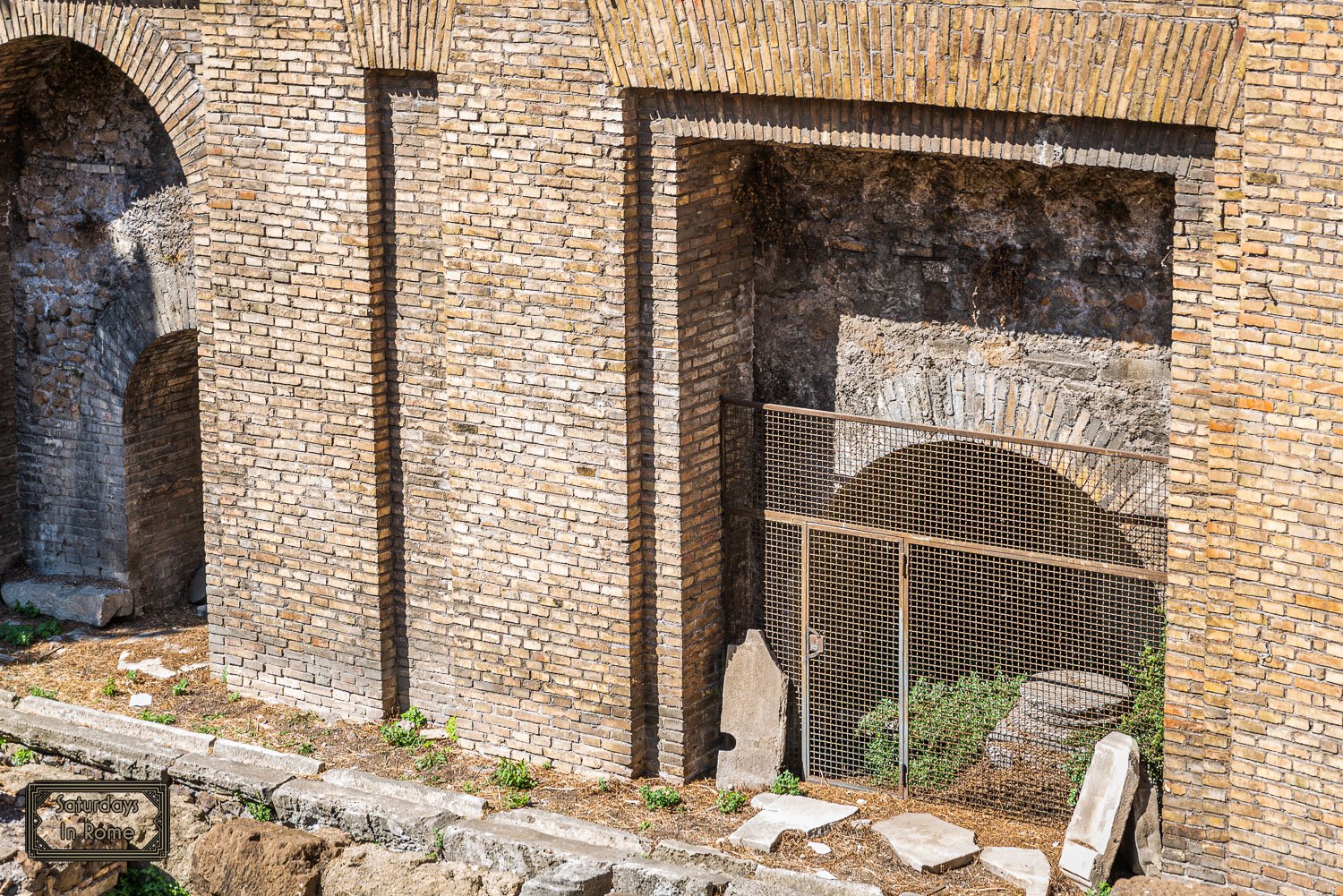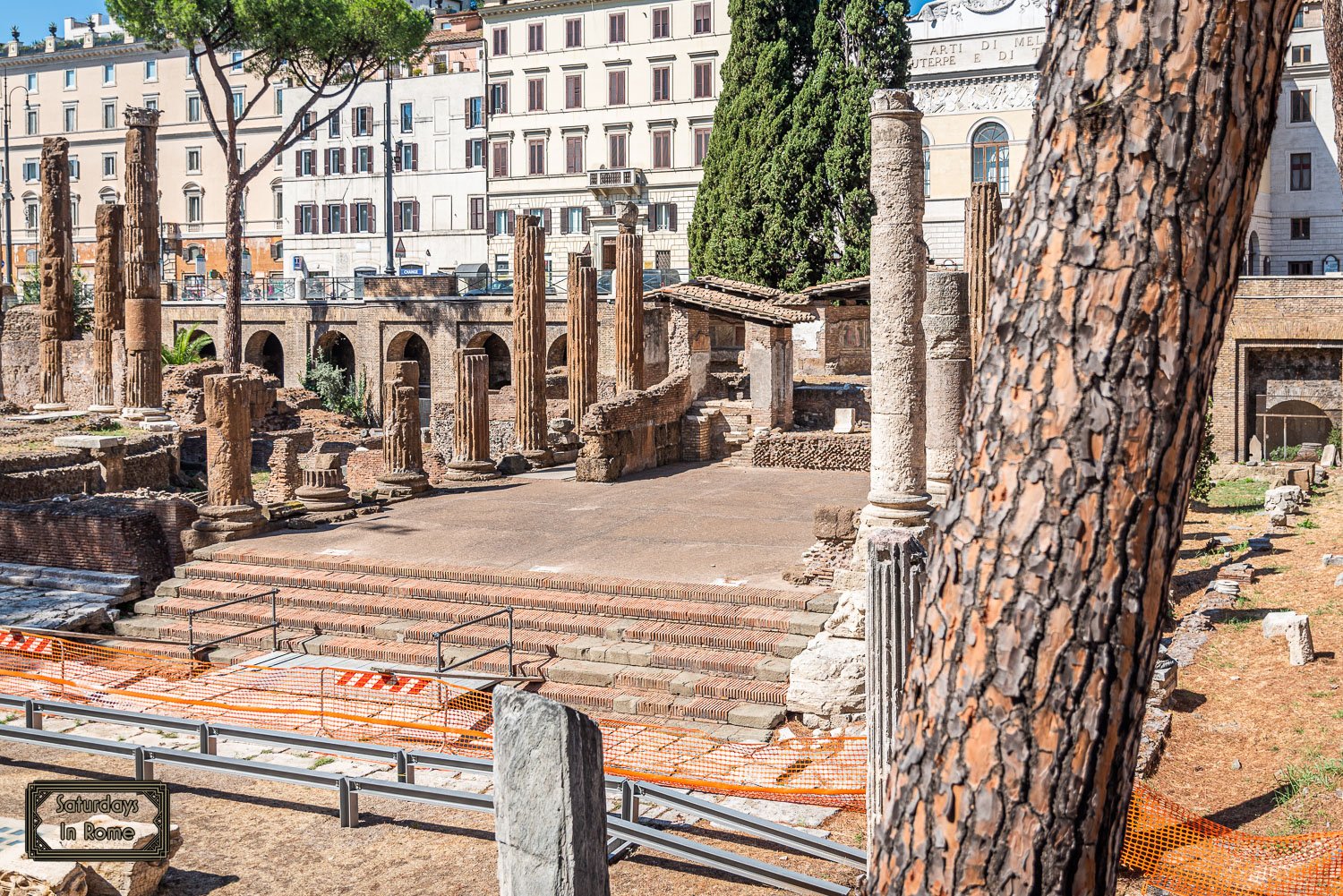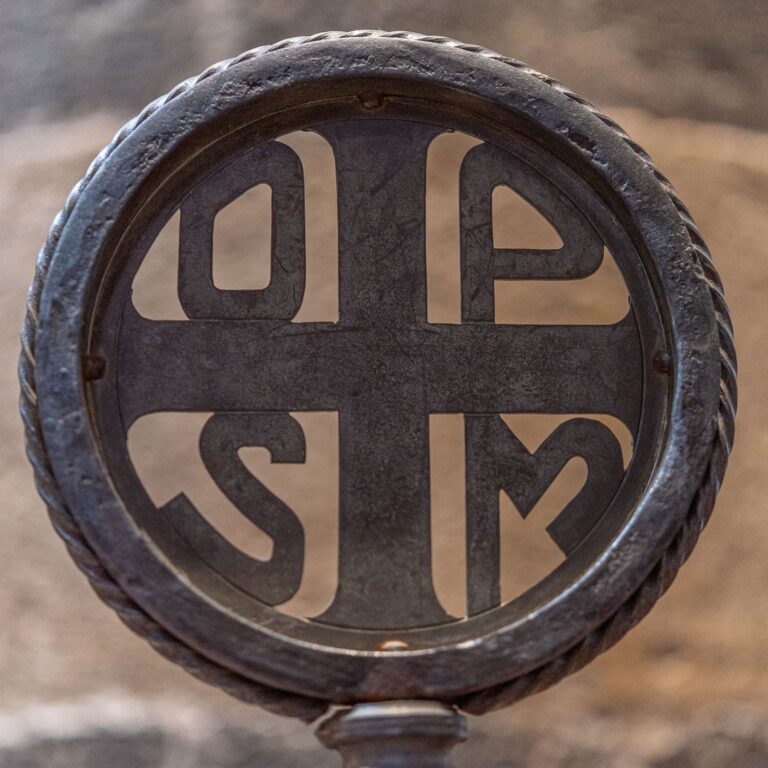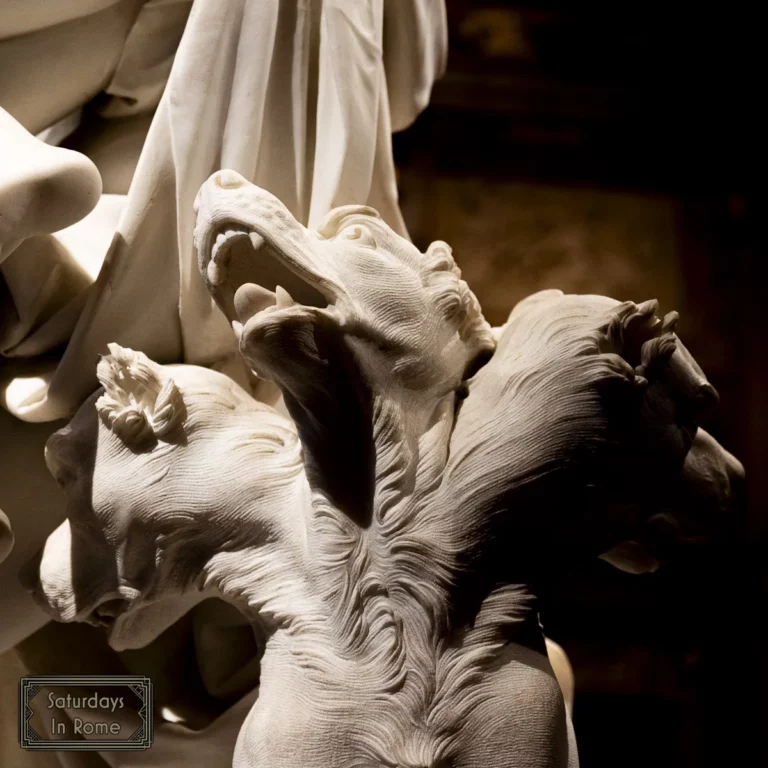Largo Di Torre Argentina Rome Is A Sanctuary In The Ruins
Largo di Torre Argentina is an important historical and archaeological site in Rome, Italy as well as an amazing cat sanctuary built among the ancient ruins.
Largo di Torre Argentina
Largo Argentina, also known as Largo di Torre Argentina, is one of the most important historical and archaeological sites in Rome. There are remains of four temples (A, B, C and D) from the days of the Roman Republic as far back as the 4th century BC, there is a Rome cat sanctuary for our feline friends and it is the site of a very well known murder more than 2000 years ago.
The name Argentina derives from Argentoratum, an old name for the city currently called Strasbourg, the city of origin of Johannes Burckardt who was a priest and chronicler during the Italian Renaissance.
Need Help Planning?
- Cheap Flights: Find The Most Affordable Flights.
- Accommodations: From 1 to 5 Stars And More.
- Car Rentals: Affordable Travel Across Italy.
- Sightseeing Tours: Explore Some Amazing Tours.
- Buying An eSIM: Stay Connected In Italy.
This post includes affiliate links.
What Was Largo di Torre Argentina Used For?
It was discovered during construction work in 1926 and excavated until 1928, with subsequent excavations until 1970. The remains of four temples are called A, B, C and D because not enough is known about the history of these temples, but the most probable identification of these temples is the following:
- Temple A is the Temple of Juturna
- Temple B is the Temple of Fortuna Huiusce Diei
- Temple C is the Temple of Feronia
- Temple D is the Temple of the Permarini Lares
The Assassination Of Julius Caesar
The Site of Caesar’s Assassination
Gaius Julius Caesar was born on July 12, 100 BC into a patrician family which claimed descent from Julus supposed descendent of the goddess Venus. He was a Roman general, statesman, and a member of the First Triumvirate, which was an alliance among three prominent politicians (Caesar, Pompey, and Crassus) to bypass the complex set of checks and balances of the constitution of the Roman Republic.
The constitution was designed to prevent a man from rising above the rest and creating a monarchy. In order to bypass this they promised to use their respective influence to help each other.
The murder of Julius Caesar (Giulio Cesare) is well known as it has been artistically recreated many times on stage, film and in literature. Caesar was 56 years old when he was murdered on March 15, 44 BC inside the archaeological complex on Largo Argentina, behind temples B and C.
On that site is what remains of the Curia of Pompey, where the sessions of the Senate of Rome were held, and on that fateful day Julius Caesar was stabbed to death by a group of around twenty Roman senators who considered themselves guardians and defenders of the republican tradition and who were opposed to any form of personal power.
The Temple Remains
The legacy of this act continues today as a reminder every March 15th to “Beware the Ides of March”. This warning from a mystic in Shakespeare’s play, and every pop culture reference to the Ides, makes it seem like the day itself is cursed. Another legacy is the word: Caesaricide.
This is understood to mean the physical elimination of those who are believed to be against freedom to gain personal power. Over time the definition has broadened to take on the meaning of an extreme attempt to defend the values of civil liberties and to preserve at any cost the values of tradition endangered by a despot.
The Largo Di Torre Argentina Cat Sanctuary of Rome
There continues to be more excavations and improvements being made to this important site, but one group of residents who will not be disturbed are the cats who call Largo di Torre Argentina their home. The Torre Argentina Cat Sanctuary (Il Santuario dei Gatti di Torre Argentina), which is also known as Feral Feline Colonies Torre Argentina, and according to the Cats of Rome website:
“More than two thousand years have passed since then, but surely something of Caesar’s spirit survives in some of our aristocratic cats who proudly guard the ruins of ancient temples.”
In 1929, stray or abandoned cats settled in Largo Argentina because of the protection offered to them by the archaeological sites located below street level. At the same time, a procession of cat lovers, which the Romans called Gattari with a certain condescension, began to take care of cats and bring them food. In addition, a habit of abandoning unwanted cats in Torre Argentina began to spread among the Romans.
The Feral Feline Colonies Of Torre Argentina
Today, all of the cats in the sanctuary are all sterilized, vaccinated, tested and freed from internal and external parasites. The reduction of feline stray animals is the main purpose of the activity of the colony of Torre Argentina. It wants to be known as a Center for the Promotion of Sterilization and not as a shelter for stray cats in distress.
The requests for help are more than can be supported, so they have needed to severely limit the access of new animals only to those cases that do not offer other possibilities of solution. Mutilated, blind or variously disabled cats are welcomed with priority.
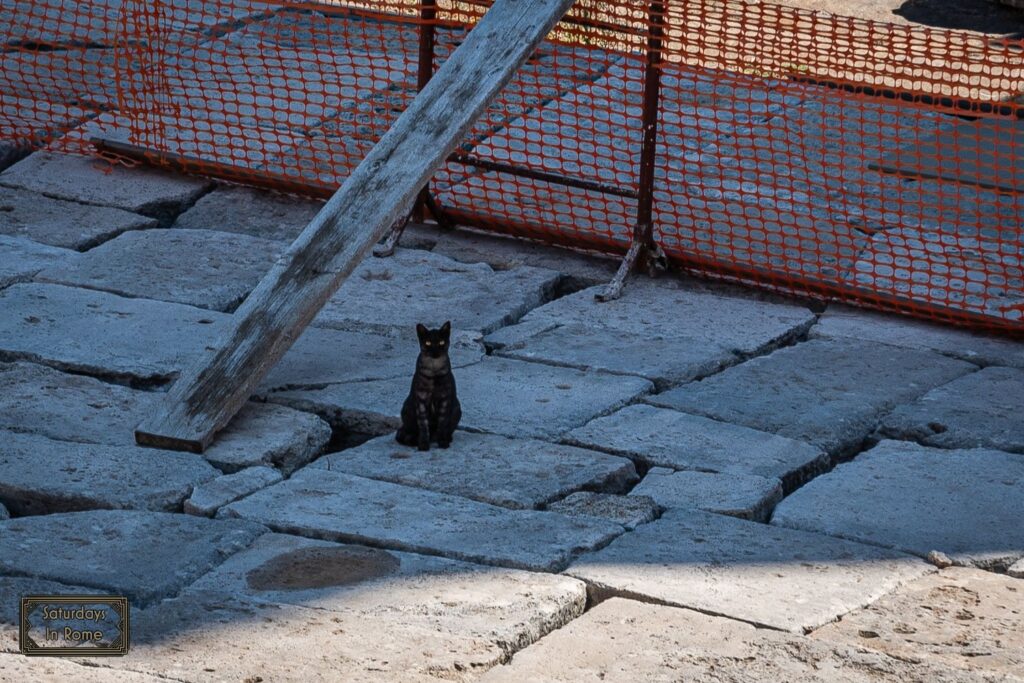
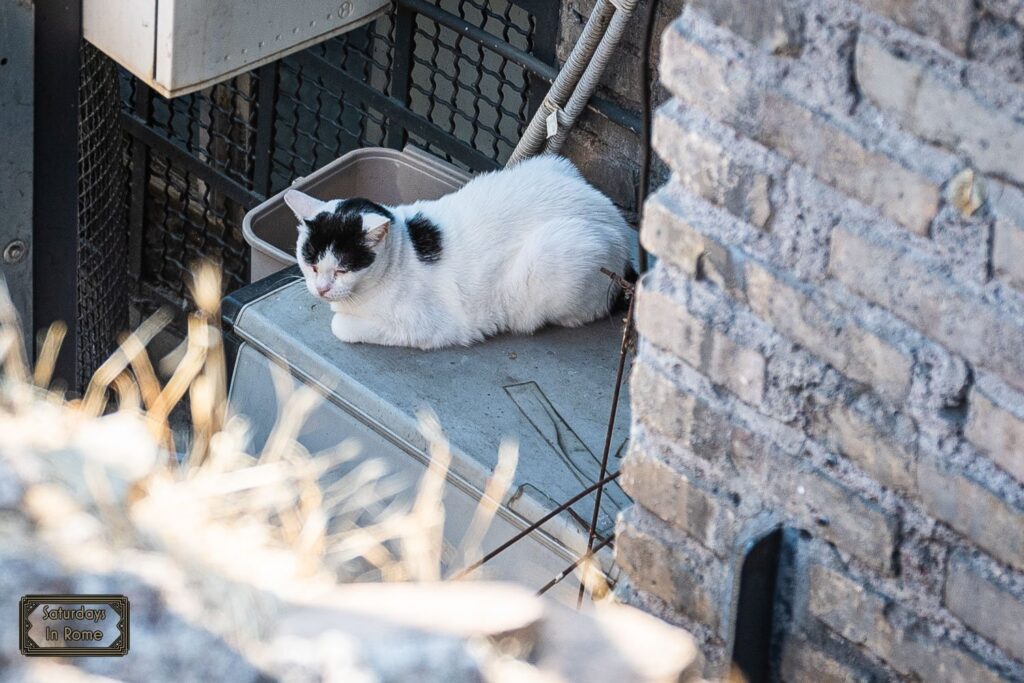
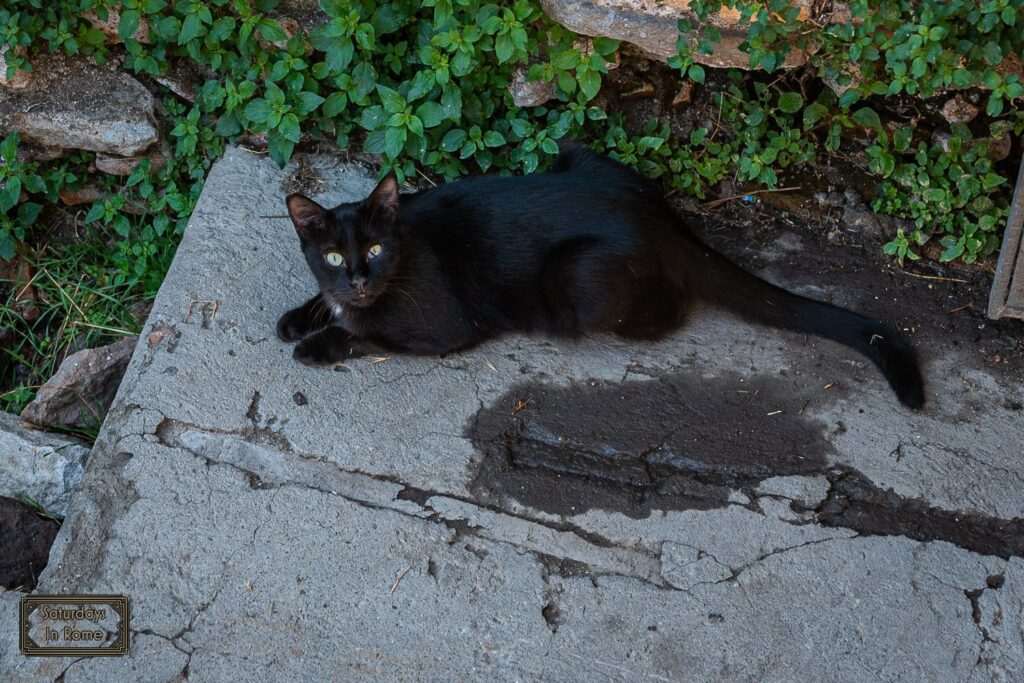
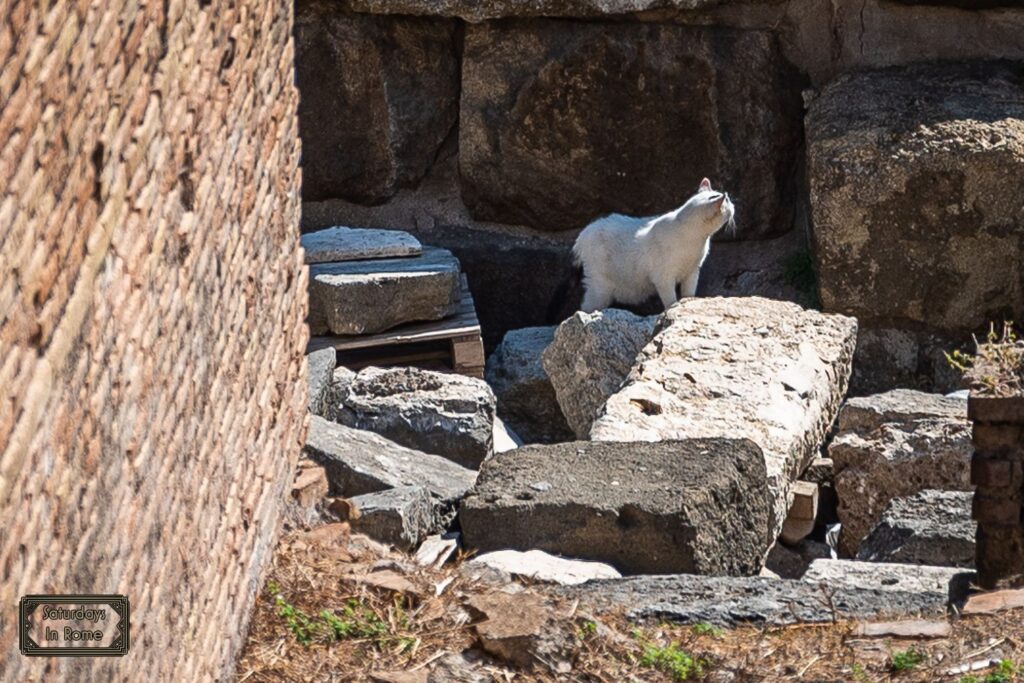
Where To Eat Near Largo Di Torre Argentina
When you visit Largo di Torre Argentina, keep in mind that because of its central location, it is close to many excellent restaurants. The ones you should be aware of are:
- Roscioli
- Rossopomodoro
- Emma’s is one of the best affordable restaurants in Rome.
- Sora Margherita
How To Visit Largo di Torre Argentina
Largo Argentina is very centrally located in Rome with a major bus stop, tram line and taxi stand surrounding the piazza. The buses available are the #30, #40, #46, #62, #64, #70, #87, #492 and the #3 tram is also nearby.
Rome Sites Near Largo di Torre Argentina
Being as central as it is there are also quite a few sites in the neighborhood that you can check out as well. These include:
- Your Guide To Rome’s Jewish Quarter.
- Inside The Pantheon
- Experience Egyptomania At The Egyptian Pyramid In Rome.
- The Forum of Augustus – History, Tours and Tickets.
- The Vittoriano Monument In Rome – Your Questions Answered.
In addition to these fantastic sites that are very close by, you can also take a short walk from Largo di Torre Argentina to Trastevere, Piazza Navona and Piazza Venezia.

